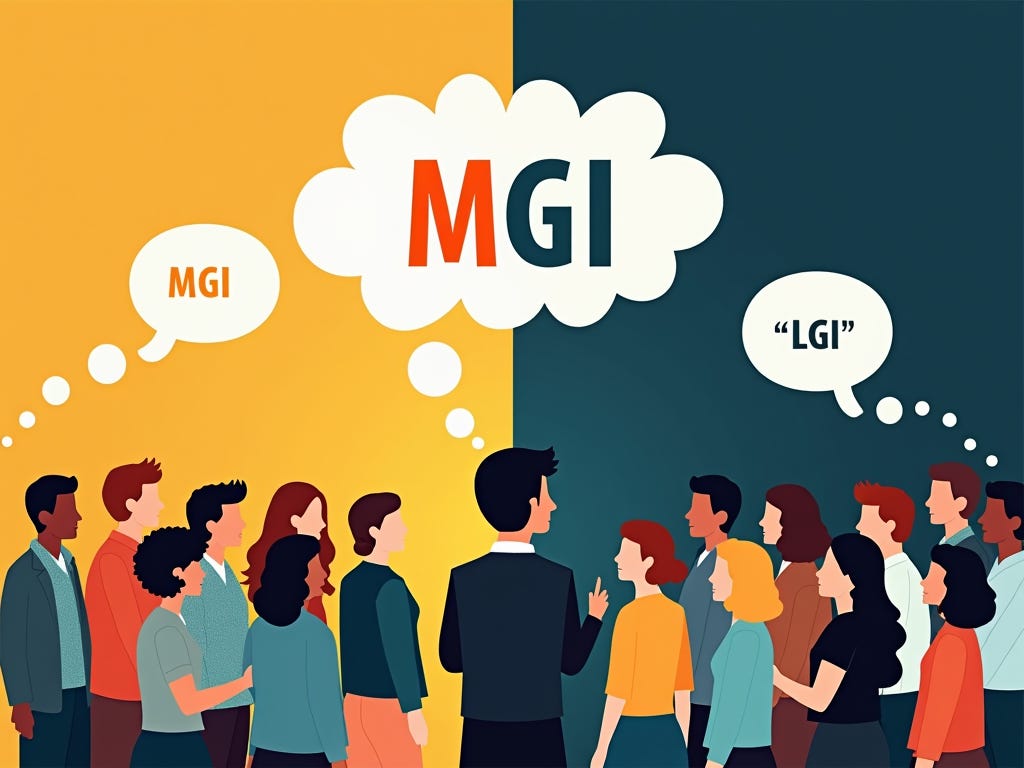The Power of Perspective: Understanding MGI and LGI in Human Interactions
How the Most Generous and Least Generous Interpretations Shape Our Relationships and Experiences
MGI (Most Generous Interpretation) and LGI (Least Generous Interpretation) are powerful concepts in psychology that can significantly impact our relationships and daily interactions. These approaches offer different lenses through which we can view and interpret the behaviors and intentions of others.
Understanding MGI and LGI
Most Generous Interpretation (MGI)
MGI involves assuming the best about a person's intentions and behaviors, even when they are challenging or difficult to understand. It encourages us to:
See others as fundamentally good
Look for underlying reasons behind behaviors
Approach situations with empathy and curiosity
Least Generous Interpretation (LGI)
LGI, on the other hand, assumes the worst about a person's intentions and behaviors. It often leads to:
Negative judgments about others
Focusing on the problematic aspects of behavior
Harsh or punitive responses
Real-World Examples
Let's explore how MGI and LGI play out in everyday situations:
Scenario 1: The Late Colleague
Your coworker is 15 minutes late for an important meeting.MGI: "They must have encountered unexpected traffic or had an urgent matter to attend to. I'm sure they'll explain when they arrive."LGI: "They're so irresponsible and don't respect our time. They probably didn't even bother to leave on time."
Scenario 2: The Unresponsive Friend
Your friend hasn't replied to your messages for a few days.MGI: "They might be going through a tough time or feeling overwhelmed. I'll check in to see if they're okay."LGI: "They're ignoring me on purpose. Our friendship clearly doesn't matter to them."
Scenario 3: The Grumpy Cashier
A store cashier is short-tempered and abrupt with you.MGI: "They might be having a difficult day or dealing with personal issues. Everyone has off days sometimes."LGI: "They're rude and shouldn't be working in customer service if they can't be polite."
The Impact of MGI and LGI
Consistently applying MGI can lead to:
Improved relationships
Increased empathy and understanding
Better communication
Reduced conflict and stress
Conversely, defaulting to LGI often results in:
Strained relationships
Increased negativity and stress
Misunderstandings and conflicts
Missed opportunities for connection
Cultivating an MGI Mindset
While it's natural to sometimes lean towards LGI, especially in frustrating situations, consciously practicing MGI can significantly improve our interactions and overall well-being. Here are some tips:
Pause before reacting
Consider alternative explanations for behavior
Practice empathy and put yourself in others' shoes
Recognize that everyone faces challenges
Focus on solutions rather than blame
By adopting an MGI approach, we can create more positive, understanding, and compassionate interactions in our daily lives. While it doesn't excuse harmful behavior, it allows us to approach situations with a more open and constructive mindset, ultimately leading to better outcomes for everyone involve
d



